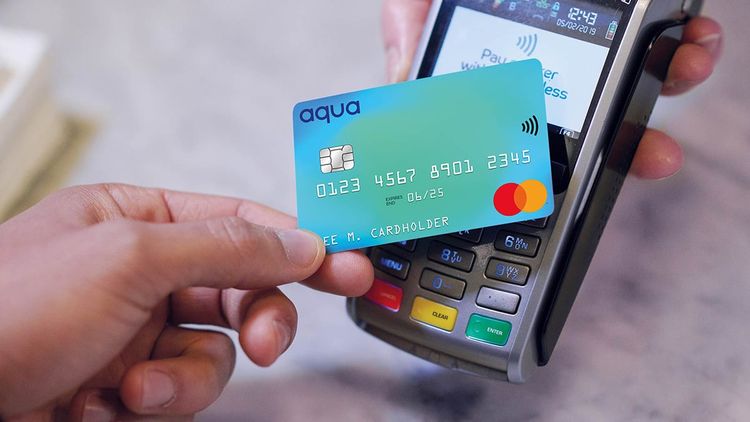What is a credit check? Hard & soft credit checks explained
Discover the differences between hard and soft credit checks, how they impact your credit score, and when each type is used.

Otherwise known as a credit pull or credit inquiry, a credit check is when a lender or another party reviews your financial history to assess your overall creditworthiness.
By checking your borrowing habits, a lender can gauge your likelihood of meeting financial obligations and ultimately making monthly repayments on time.
If the term ‘credit check’ is new to you, our guide will run you through the difference between a soft and hard credit check, when they’re conducted, and why they’re part of the approval process.
What is a credit check?
A credit check occurs when you apply for a loan, overdraft, mortgage, credit card, or any other type of credit. They’re typically conducted by a company, creditor, or financial institution to assess the risk of lending or doing business with you.
As part of the process, your credit report will be requested from a credit reference agency (such as TransUnion, Experian, or Equifax) and checked by your potential lender. As well as detailing your borrowing history, it will highlight any risks with offering you credit.
It’s also likely a lender will check your credit score to predict the likelihood of paying back what you borrow on time. Scores are based on information provided in your credit report and may temporarily drop by a few points depending on the type of credit check.
The overall findings in your credit report combined with your credit score will influence the amount of credit you’re offered by a lender. The stronger the score, the more likely it is you’ll be approved for a higher credit limit.
When is a credit check conducted?
A credit check is conducted by various financial institutions for a range of credit-related activities, such as:
Applying for a loan or mortgage so a bank or building society can determine the risk involved in approving your loan, and how much credit they are willing to lend you.
Renting a property where a landlord or letting agency want to verify the identity of a potential tenant, as well as their financial reliability when it comes to paying rent on time.
Applying for certain jobs especially in the financial sector where roles typically involve handling money, dealing with financial data, and making sensitive financial decisions.
Signing up for utility services to help providers decide whether additional financial measures are required to mitigate risk, such as a security deposit.
Purchasing an insurance policy to verify the information provided in an application, as well as determine the payment options and premium for the policy.
Whether it’s to perform a soft or hard credit check, the use of your personal credit history is limited by the Fair Credit Reporting Act (FCRA) enacted in 1970.
What is a soft credit check?
A soft credit check is a non-intrusive inquiry into your credit report that stays on your record for up to 12 months. It’s typically conducted by those who want to check if they prequalify for credit, as well as lenders looking to pre-approve a credit offer.
As well as revealing personal details such as your name and address, a soft search provides a snapshot of your current credit accounts including loans, bank accounts, and credit cards. It also details your borrowing history, including missed or late payments.
Unlike hard checks, a soft credit check doesn’t impact your credit score because it’s not directly linked to securing credit. It’s also invisible to companies checking your record, so you can perform as many as you like without impacting your ability to secure credit.
When you apply for an Aqua credit card, we’ll start with checking your eligibility. This is a soft check that’s quick and gives an indication of whether you may be eligible, based on the information provided, along with your estimated APR and credit limit.
If you choose to proceed, a full credit check and affordability assessment will be carried out before any decision to lend is made. Learn more about how to apply for a credit card.
What is a hard credit check?
A hard credit check is a thorough review of your credit report requested by a lender when you apply for credit. Unlike a soft check, it can impact your credit score and ability to secure credit – especially if too many hard checks are requested in a short space of time.
Hard credit checks are often performed if you’re applying for a loan, mortgage, or credit card. When a hard search is requested by a potential lender, the credit reference agency will add the hard inquiry to your credit report which can stay visible for up to two years.
As a result, a report carrying hard inquiries suggests to other lenders you’ve accepted a credit offer and about to increase your debt. It means you could be seen as a potential risk for further lending, which is reflected in the temporary lowering of your credit score.
Provided your finances stay on track, you stay well within your credit limit, and continue to make payments on time, your credit score should rebound after a few months.
Soft vs hard credit checks
Although soft and hard credit checks share some common ground, there are several key differences between the two which are summarised below:
Soft Credit Checks
Purpose: Informal credit review
Scenario: Occurs for personal checks, credit preapproval, or existing creditors who want to check your credit.
Visibility: Only to the individual
Score Impact: No impact
Permission: Doesn’t require your written permission
Timescale: Up to 12 months
Hard Credit Checks
Purpose: Formal credit review
Scenario: Occurs during a loan or credit card application process.
Visibility: Potential lenders
Score Impact: May temporarily lower score
Permission: Typically requires your written permission
Timescale: Up to 24 months
Credit checks help lenders and other financial institutions better understand your creditworthiness. Whether it’s renting a property or applying for a new credit card, they’re used to gauge your likelihood of making payments on time.
When you apply for an Aqua credit card, we’ll start with an eligibility check that’s over in as little as 60 seconds – with no onward impact on your credit score. Learn more about our credit cards and how they can help you build better credit and take control of your finances.
Representative 39.9% APR (variable) on Aqua Classic.
Failure to make payments on time or to stay within your credit limit means that you will pay additional charges and may make obtaining credit in the future more expensive and difficult.
Contributors


You might also like
Slide 1 of 3
What is a credit limit?
What is a credit card limit? Discover how credit limits are calculated, what happens if you go over, and how to man...

Advantages of using a credit card
From spreading costs to building credit history, learn the benefits of credit cards when used responsibly.

Understanding types of credit cards
Find out more about the common types of credit cards and which is right for you.
The smart way to build better credit
Aqua is the credit card that gives you the power to improve your credit score
